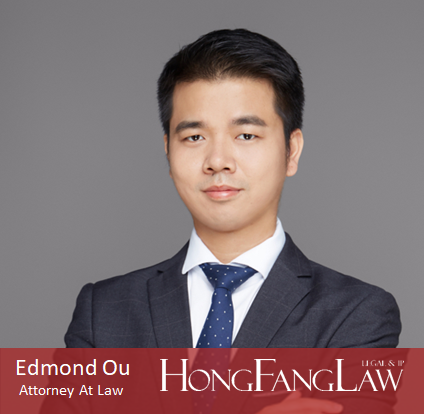Trademark legitimate source defense
The confrontation between legitimate source defense and actively implemented trademark use behavior
Recently, in the case that Hangzhou Yuanxian Beverage Technology Co., Ltd. (hereinafter referred to as “Hangzhou YuanxianCompany”) filed against Sanming City Meilie District Yunzhen Milk Tea Shop (hereinafter referred to as “Yunzhen MilkTea Shop”) for infringing trademark rights, the Intermediate People’s Court of Sanming City ( (hereinafter referred to as “Sanming City Intermediate Court”) identified Yunzhen Milk Tea Shop’s prominent use of the “古茗” logo on its shop signs, store decorations, and beverage packaging bags as an infringement of Hangzhou Yuanxian Company’s exclusive right to registered trademark No. 21870449 “古茗”.
The main point of the case is that Yunzhen Milk Tea Shop’s use of the trademark “南山古茗” was authorized by an individual not involved in the case and whether legitimate source defense can be applied to the lawsuit filed by Hangzhou Yuanxian Company against Yunzhen Milk Tea Shop’s trademark infringement.
Sanming City Intermediate Court believes that although Yunzhen Milk Tea Shop was authorized to use the trademark “南山古茗”, it did not use the trademark normatively.
Instead, it highlighted the “古茗” logo in actual use and narrowed the characters “南山”, which constitutes trademark infringement. This identification was also agreed upon by the Fujian Higher People’s Court of the second instance.
In addition, the judge of the court of the second instance further commented that Yunzhen Milk Tea Shop used the trademark “南山古茗” on services of “restaurants, teahouses”, etc. in Class 43 and provided catering services of making beverages like milk tea, etc. on-site according to the specific needs of consumers.
Related products were produced in the process of Yunzhen Milk Tea Shop providing services, rather than provided by manufacturers or upstream sellers. Therefore, Yunzhen Milk Tea Shop is the service provider. The service provider is the service seller, and the process of selling the service is the process of delivering the service. The service provider is both the seller and the producer of the service.
According to the regulation in Article 64.2 of the Trademark Law pertaining to the “legitimate source defense”, the applicable objects are sellers of goods, excluding service providers. Therefore, Yunzhen Milk Tea Shop, as a service provider, does not belong to the application object of the “legitimate source defense”, and shall still accept liability for damages to Hangzhou Yuanxian company.
In the above-mentioned cases, the judge of the court of the second instance interpreted the application of Article 64.2 of the Trademark Law more accurately, clarifying and distinguishing the legal responsibilities of sellers of goods and service providers.
In the author’s view, the need to distinguish sellers of goods and service providers in the application of “legitimate source defense” is mainly related to the nature of their respective infringements which circumstance their trademark infringements belong to in Article 57 of trademark law.
Specifically speaking, as commodity producers or service providers, they actively use trademarks on commodities and their packaging or on business premises and services such as shop signs, store decorations, and employee clothing. Once such acts constitute infringement, they belong to the circumstance in Article 57 (1) or (2) of the Trademark Law.
The commodity producers and service providers in this infringement circumstance have the subjective intention to confuse the source of the goods and services; while the sellers of goods generally do not actively use trademarks, but only sell goods purchased from the previous sellers or producers.
Once such sales constitute infringement, they belong to the circumstance in Article 57(3) of the Trademark Law, which may not necessarily be a subjectively intentional infringement. Therefore, when the sellers of goods can prove the legitimate source of relevant goods, they only bear the liability to stop the infringement, and shall not bear the liability to compensate for losses.
From the above analysis, we understand that the sellers of goods did not actively use trademarks in general, but for importers/distributors of goods such as prepackaged food, etc., it is very likely that there may have been trademark use activities in the process of importing and selling goods such as prepackaged food, etc.
In this circumstance, if the importers/distributors constitute trademark infringement, they do not belong to the application objects of the “legitimate source defense” and shall still be liable for damages to the owner of the trademarks. For example, in the process of parallel import, even if the imported and sold goods are genuine, the active use of Chinese trademarks, owned by manufacturers or domestic trademark owners, like product names, in the process of attaching Chinese labels or on the customs declaration forms and the inspection and quarantine certificate of entry goods, belongs to trademark use activities and constitute trademark infringement, because the relevant importers/distributors are not the manufacturers of imported goods or the importers/distributors legally authorized by the domestic trademark owners.
Specifically, in the author’s view, such infringement falls under the circumstance stipulated in Article 57 (1) or (5) of the Trademark Law. In this circumstance, unauthorized importers/distributors who actively use trademarks are not just pure sellers of goods and shall not be the applicable objects of “legitimate source defense”. There are also many similar cases in China’s judicial practice, such as trademark “绝对” infringement case [CaseNo: (2013) Su Zhong Zhi Min Chu Zi No. 175], trademark “奥丁格” infringement case [Case No: (2014) Min Min Zhong Zi No. 914], trademark “卡罗娜” infringement case[(2020) Zhe Min Zhong No. 326].
In view of this, for importers/distributors of parallel import, even if the goods they import and sell are genuine, if there exist acts such as attaching Chinese labels in a non-standard way, etc., they may also constitute trademark infringement. They cannot use legitimate source defense just because the goods are not produced by them and shall still bear the liability to compensate for losses.
Some importers/distributors’ acts of importing and selling goods that counterfeit the trademarks of others for personal gain, once determined infringing, fall under the infringement circumstance stipulated in Article 57(2) of the Trademark Law and cannot be the applicable objects of the “legitimate source defense”, and cannot be exempted from the liability to compensate for losses. Therefore, from a certain perspective, the importers/distributors bear more infringement liability than downstream sellers for selling goods with counterfeit trademarks.
The main reason is that the importers/distributors currently are the most original contacts and controllers of imported goods and have more duties of care than downstream sellers about whether the imported goods infringe the exclusive rights of others’ trademarks.
In summary, according to the regulation in Article 64.2 of the Trademark Law, the sellers of goods are the applicable objects of the “legitimate source defense” and are also preconditions for the application of this article.
Commodity producers, service providers, etc. are excluded, and none of these subjects can apply legitimate source defense in trademark infringement disputes. However, it should be noted that not all sellers of goods are eligible for the “legitimate source defense”. It happens frequently that, importers/distributors of imported goods use Chinese trademarks, owned by the manufacturers or the domestic trademark owners, or similar trademarks as product names without authorization, in the process of customs declaration and attaching Chinese labels, which constitutes trademark infringement and cannot apply legitimate source defense, but shall bear liability to compensate for losses.
From the above analysis, it is not difficult to see that for sellers of domestic products or sellers of imported products (importers/distributors), whether they can apply the legitimate source defense in trademark infringement disputes mainly depends on whether they take the initiative to use the trademarks. If they do, the infringement may constitute one of the circumstances in Article 57 (1), (2), (5) of the Trademark Law; if not, they shall prove that they only conducted the act of selling infringing goods that belongs to the circumstance in Article 57 (3) of the Trademark Law. At this point, if the sellers of the goods can provide relevant evidence to prove it, the legitimate source defense raised by him will be supported. Therefore, importers/distributors who are sellers of goods cannot make use of the “legitimate source defense” under certain infringement conditions.
Authors:
Legal basis:
Trademark Law of the People’s Republic of China
Article 57: Any of the following acts is an infringement of the exclusive right to use a registered trademark:
(1) Using the same trademark as the registered trademark on the same goods without the permission of the trademark registrant;
(2) Using a trademark similar to the registered trademark on the same goods, or using a trademark identical or similar to the registered trademark on similar goods without the permission of the trademark registrant, which is likely to cause confusion;
(3) Selling goods that infringe the exclusive right to use a registered trademark;
(4) Counterfeiting or manufacturing the registered trademark signs of others without authorization or selling counterfeit or unauthorized registered trademark signs;
(4) Counterfeiting or manufacturing the registered trademark signs of others without authorization or selling counterfeit or unauthorized registered trademark signs;
(5) Changing the registered trademark and putting the goods with the changed trademark on the market without the consent of the trademark registrant;
(6) Deliberately providing conveniences for infringing others’ exclusive right to use trademarks, and helping others to infringe the exclusive right to use trademarks;
(7) Causing other damages to others’ exclusive right to use the registered trademark.
Article 64.2: Selling goods that are not known to infringe the exclusive right to a registered trademark shall not be liable for compensation if the goods can be proved to be obtained legally and the supplier has been stated.


